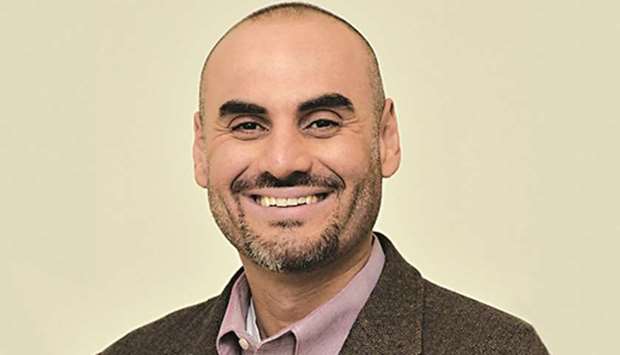The healthcare industry had long embraced traditional data collection methods such as public medical records, inpatient monitoring, or administrative filing systems as the only mechanism for advancing patient-care. But an overpowering trend of collecting data from seemingly disparate and unconnected sources has been recently on the rise. Whether we approve or not, the smart watches we wear, social media platforms we use, smart phones we carry, and genetic data we bear are slowly but surely painting the future of the healthcare we receive.
But how successful is this trend in delivering on its hopeful promises? And what obstacles are encumbering its progress?
* Big Data, Bigger Challenges
Although the Big Data Revolution has accelerated the growth and investment by healthcare organisations in pooling data together to improve patient-care, many challenges remain unseen. Firstly, traditional computing power cannot process these large amounts of data. That is what the field of Big Data is now trying to achieve – to look at new ways of combining traditional and non-traditional sources and use algorithms to find data patterns to improve patient monitoring, disease surveillance, treatment prescriptions, and patient care. The ultimate trophy? Improved patient support and cost-saving mechanisms for the healthcare industry.
A non-traditional approach is likely to sit well with the penetration of technology in all aspects of our lives, but it leaves us with very complex questions. How ethical are these data collection methods? Are healthcare professionals equipped to employ such data-gathering means? How can we apply such methods in medical diagnoses and treatment? Is all data equal and the same?
Personalisation of health means soliciting data from DNA, socio-demographic statistics, wearables, and even environmental factors. Combining these dissimilar sources of data to understand patients at the individual level is an undeniable reality, but it will take much time and resources for a cultural, technological, and educational change to occur and for individualised personal healthcare to become standard practice within the healthcare environment.
Change within healthcare system is rather slow and takes time, but the solution inherently lies within the medical education system. If doctors are trained to use electronic health records, or take undergraduate courses in biomedical and health informatics, they will be exposed to different types of data and can be trained on how to integrate such information within a professional framework. With the rise of Big Data and AI, proponents can argue that AI will make much of the decisions related to diagnosis and treatment options for patients, yet doctors will be needed to relay this information to patients. This is where we envision the medical profession to move from a disease-focused approach to a human-centred approach. Whatever changes ultimately take place, one thing is certain – the healthcare industry needs to adapt in time.
* Is Regulation Really Imperative: Cases For and Against
With the large-scale pervasiveness of unconventional data collection practices comes the need for some form of oversight. North America and Europe have done especially well by enacting country-specific laws. In the Gulf Co-operation Council, healthcare organisations have complied with or implemented international standards for health privacy policy and procedures in hospitals nation-wide. Though regulation exists, you may be finding that different hospitals are adopting different procedures when it comes to the privacy of health information.
A rather difficult question awaits us when we examine the ownership of electronic health records, which give a narrow definition of “access permission”, by no means guaranteeing complete confidentiality. Additionally, some patient protection acts have failed to enlist fitness trackers, social media sites, and credit card payments under its data privacy clauses. Once electronic health records are made public online, we lose the legal framework within which we may be able to regulate their use.
Overcoming these challenges will depend on whether these sources are making a substantial difference in clinical decision-making. If physicians become increasingly reliant on non-traditional ways of gathering information, the need to regulate will become imperatively evident. Reliability of data sources plays a major role here; we have seen a strong movement in incorporating DNA data, but other data coming from wearables have not gained that much traction within the dominant medical community.
* Aligning with Contemporary Needs
Privy to worldwide trends, the College of Science and Engineering – one of Hamad Bin Khalifa University’s fast-evolving entities – has inaugurated its Master of Information Systems in Health Management and a Master of Data Analytics in Health Management in collaboration with the College of Health and Life Sciences. They are unique programmes designed to prepare students for professional roles in the design and management of information systems and services in healthcare organisations and sectors.
The programmes personify the university’s long-standing commitment to creating leaders of tomorrow who are savvy, informed, and aligned with future trends. The programmes operate with the premise that tomorrow’s jobs may not be in existence yet, and that winning the race to the forefront is vital for survival in the decades to come.
* Dr Mowafa Househ is a researcher, innovator, social entrepreneur, teacher, and author of Health Informatics in the Arab World and an editor of Big Data, Big Challenges: A Healthcare Perspective, currently employed as an Associate Professor at Hamad Bin Khalifa University’s College of Science and Engineering in Qatar. His primary research interests revolve around the use of information and communication technologies to empower patients and clinicians, specifically focusing on social media and mobile technologies in healthcare for the promotion of public health practice and healthcare literacy. He obtained his PhD from the Faculty of Human and Social Development – Health Information Science at the University of Victoria in Canada.
Opinion / Opinion
The challenges of data analytics in healthcare: Transpired promises or an uncertain future?

Dr Mowafa Househ
